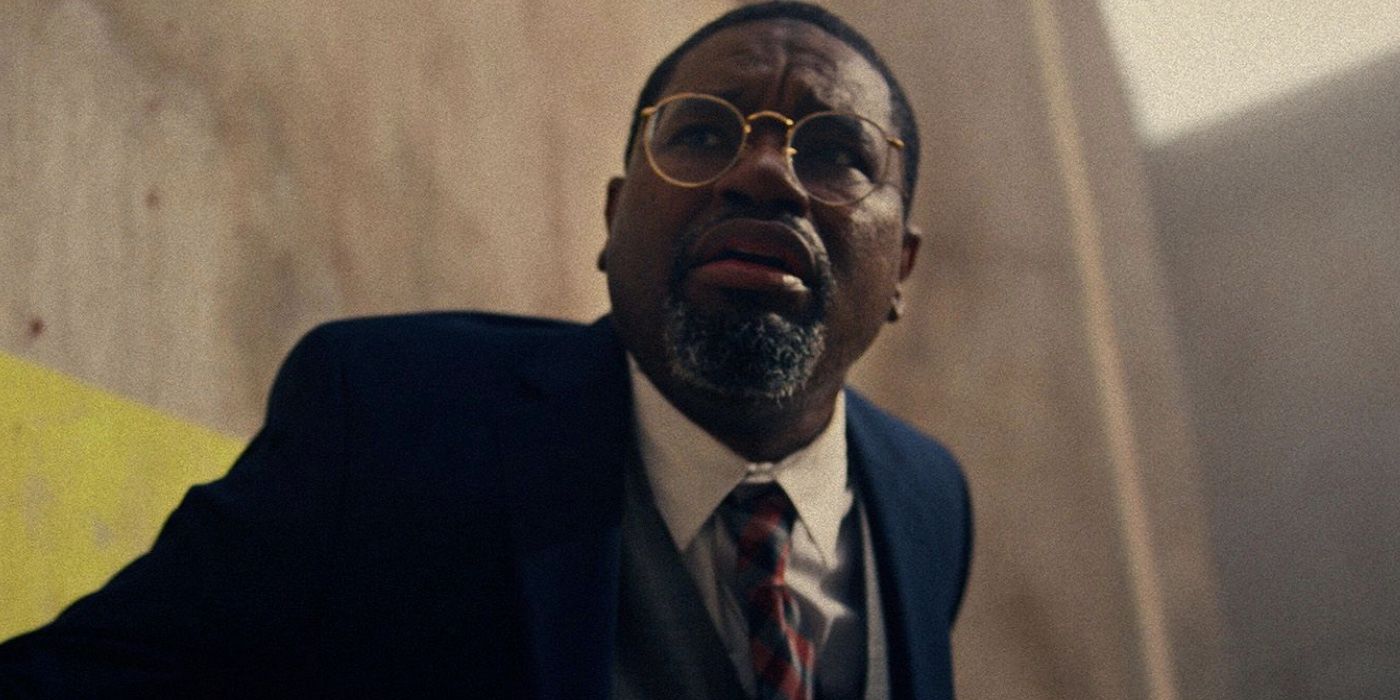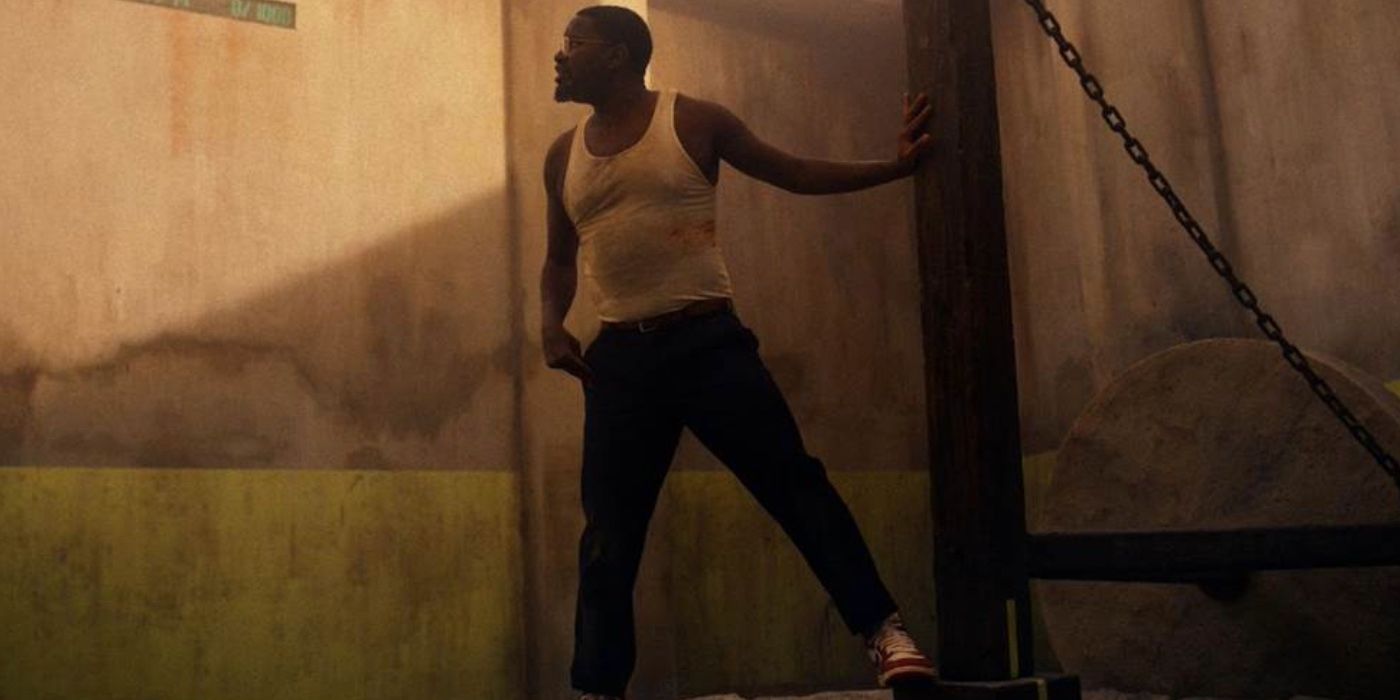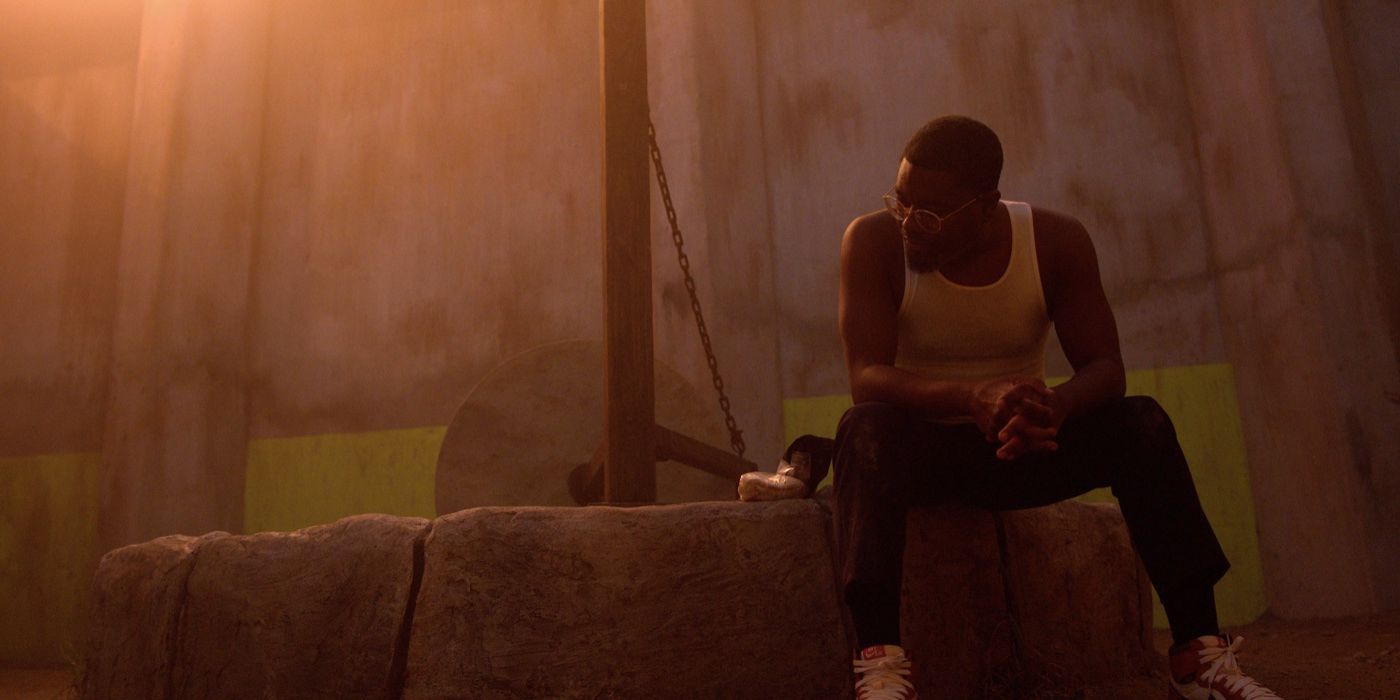The following contains spoilers for The Mill, now streaming on Hulu.
Capitalistic torture is nothing new in the film industry. Severance exceptionally succeeded on Apple TV+, and Bong Joon-Ho's Parasite is the template for stories fighting the hard battle against greed and corruption. Sean King O'Grady's The Mill takes these concepts to another level, placing one man in a single setting with an AI watching over him.
As the director of the science fiction film, O'Grady takes the frightening notion of AI and corporate burnout and proposes a new reality where Artificial Intelligence rules over humans. The protagonist and mainly the only character seen on screen, Joe (played by Lil Rel Howery), wakes up in a literal mill where he's told to do hard labor for hours straight, all because he was falling behind at his company, Mallard. In an interview with CBR, O'Grady expands on the torment behind the company's chaotic employee performance exercise.
CBR: What was it about the concept of The Mill that made you want to hop onto the project?
Sean King O'Grady: It's interesting. I read the script, the very first draft of the script that Jeff David Thomas had written, and it was just this absolute fever dream of a story that hit on so many themes that I've wanted to touch on for so long. It was the movie I'd been waiting to make and trying to make in different ways. But [I] hadn't quite done it yet. And this script just nailed it all perfectly. I think this is a story that hits on so many themes that are relevant to what we all experience in our lives in a really fun and cinematic way.
The film really has this dystopian aspect to it. How did you go about incorporating that element into the movie when filming?
Well, I think the set design does a lot of the work for us. That set was actually 15,000 pounds of concrete. It was 18-foot high walls. And when you find yourself in that space, you feel like you're in a dystopian nightmare. I think that really sets the tone for everybody -- for the cast [and] for the crew. And you just build it from there.
Even though the film itself is tragic, I found myself laughing at some points in the movie. How did you balance the horrific elements of the film with the comedy?
I think that's actually one of the things that was the most fun about it. There are a lot of filmmakers that are able to do this, like Terry Gilliam. I think [he's] probably the best at it, where they can take these absolutely horrific circumstances and make them hilarious. Like in Brazil, there are scenes where there are terrorist bombings, and you're laughing at the absurdity of the situation. I think that what I liked about this is that, yes, you do have this guy who's in this horrible situation, but when you take a step back, he's having these orders barked at him by a cartoon duck on the wall. And that's just inherently absurd.
You mentioned that some parts of the film are relevant to our real lives. That's where I wanted to talk about the advanced technology and element of AI in the movie, which we all know is a very real thing that we're dealing with in whatever career field we're in. Can you talk about the role that plays in the movie?
To me, AI is a tool like any other technology that can be used for good or for evil. It's really [about] the people who program different technologies to people who utilize different technologies for different purposes. What are their morals? What are their values? And in this case, Mallard's a very unscrupulous corporation that obviously chooses to use their AI for evil. We have to be willing to explore that, and we have to be willing to look at whether these technologies are going to be used for good or whether they're going to be used to create a utopia or a dystopia.
Realistically, probably neither. It probably lands somewhere in the middle, but I think we have to examine what those dystopian realities could be because we are living in an era where this is happening. It's science fiction that's been dropped in our laps today.
I also wanted to expand on that with the ending because I feel like the ending is probably the most horrific part of the film. A lot of people can relate to the fact that they might work at a company where the company doesn't see them as humans. They're just figures to get the job done and to get production running. Can you talk about blending fiction with reality in the end?
To me, that represents any kind of system. It can be a large system, like a corporation or a government. It can be a small system, like a relationship. What this made me think about in my own life is any sort of relationship where I'm giving more to it than I'm getting out of it is not equitable. I think that's ultimately what Joe is realizing. He's given his life to this corporation. His whole life is based on, "What can I do for this company that's going to give back to me?" And he comes to this horrific realization that he's essentially wasted his life because he's pouring everything into this corporation that has this sort of vampiric relationship with his energy and his life force.
And to me, that's what I hope people walk away from [this with], first and foremost. I hope people are in pain. I think it's a fun thriller. But if they can walk away with something, it's examining the relationships and systems in their own lives and determining which they're giving more to versus which relationships are equitable.
The [film] does end on a high note where [Joe] wants to take this company down. Is that something we'll possibly see in a sequel?
I don't want to give away the ending, but the film does have a pretty definitive mic drop of an ending. That being said, I think there's plenty more story to tell within the world of Mallard and within the world of Joe.
The Mill is available to stream on Hulu.



